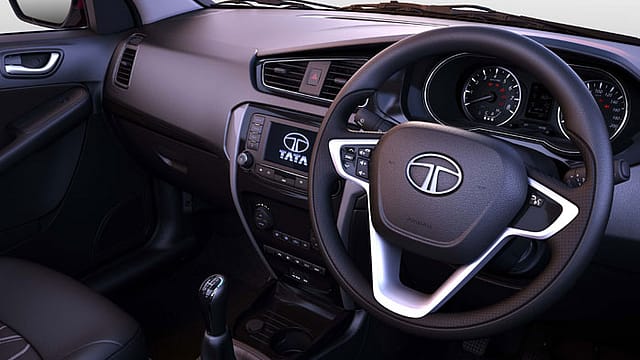Tata Motors stock hits 52-week high on Tata Group's EV battery plans
ADVERTISEMENT

Shares of Tata Motors hit their highest in over six years after Tata Group announced plans to set up a lithium-ion cell manufacturing unit in Gujarat with an initial investment of around ₹13,000 crore.
Agratas Energy Storage Solution, a subsidiary of the Tata group, signed a Memorandum of Understanding (MoU) with the Government of Gujarat on Friday. The proposed gigafactory will have a production capacity of 20-gigawatt hours.
The battery manufacturing facility is expected to aid India's burgeoning electric vehicle (EV) industry. "While the state government is committed to a vision of reducing carbon emissions by increasing the production of electric vehicles, the reliance on lithium-ion batteries has significantly increased along with EV usage," Gujarat chief minister Bhupendra Patel said last week.
Reacting to the development, shares of Tata Motors rose 2% in intraday trade on Monday to hit their 52-week high of ₹548.65 apiece on the BSE. In comparison, the benchmark BSE Sensex rose 0.38%.
This comes at a time when the Tata Group-owned automaker reported a 66% year-on-year jump in electric vehicle sales in May. The company sold 5,805 EV units last month compared with 3,505 units in May 2022. In FY23, Tata Motors crossed the milestone of 50,000 annual sales in EVs, its highest ever, to post a growth of 154% over FY22.
According to Moody's, Tata Motors retains an early mover advantage in the battery electric vehicles (BEV) market in India, with an 85% share for the period April through December 2022. Tata plans to increase its EV lineup from four models to 10, by March 2026. The carmaker's EV business already raised $1 billion from private equity investor TPG.
Tata Motors cornered an 85.4% market share in the EV passenger vehicle segment in FY22, aided by cars like Nexon and Tigor. In July 2021, Tata Motors tapped the commercial electric vehicle fleet market with the launch of the XPRES brand. In October 2021, it signed an MoU with BluSmart Mobility to supply 3,500 XPRES T EVs. In June 2022, it signed another agreement with BluSmart for 10,000 XPRES T EVs. In February 2021, it signed an agreement with ride-hailing app Uber to supply 25,000 XPRES–T EVs.
Net profit of the automaker stood at ₹5,408 crore for the January-March quarter compared with a loss of ₹1,032 crore in the corresponding period last year. Tata Motors had clocked a net profit of ₹2,957.71 crore for the quarter ended December. Revenue from operations jumped 35% year-on-year to ₹ 1.05 lakh crore as against ₹78,439 crore in the year-ago period.